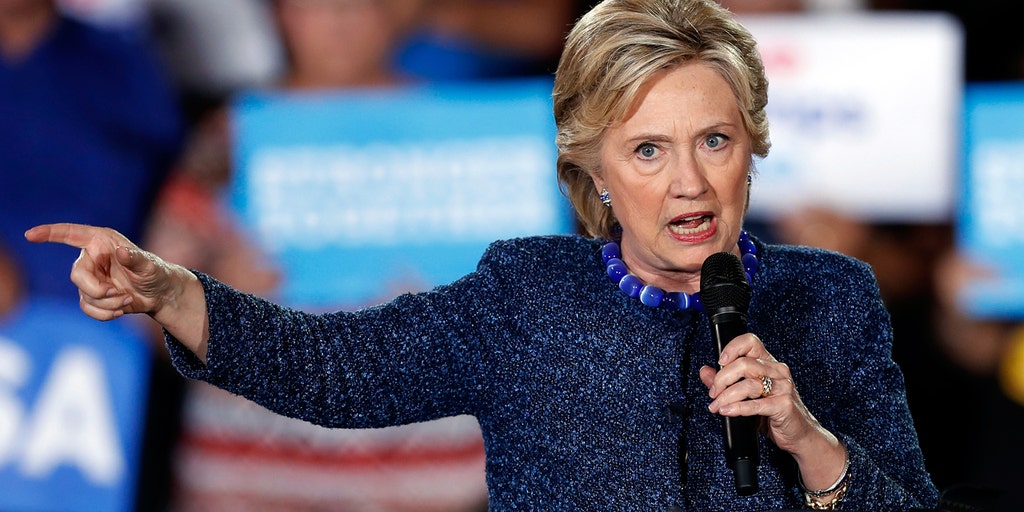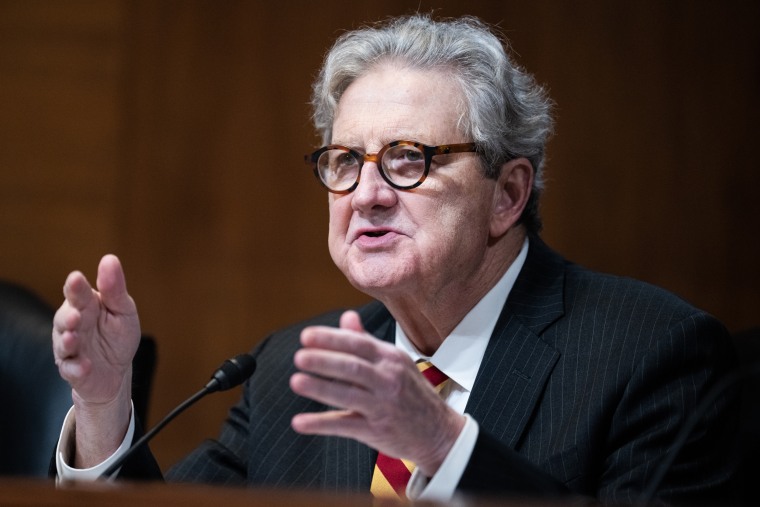Mike Johnson Reveals Chuck Schumer demanded $4 million for
House Speaker Mike Johnson revealed on Tuesday that Democrats are demanding billions in wasteful and ideological spending, including $3.9 million for LGBTQI+ democracy grants in the Western Balkans, as part of their conditions to reopen the government.
Speaking on the 14th day of what he called the Democrat government shutdown, Johnson said the American people are suffering because Democrats have chosen politics over responsibility.
“Welcome to day 14 of the Democrat government shutdown,” Johnson said during his press briefing. “It’s two weeks of Democrats in Congress inflicting untold pain on the American people for nothing other than pure politics.”
Johnson explained that House Republicans had already offered a clean continuing resolution to keep the government funded, but Democrats repeatedly rejected it.

Instead, he said, Democrats are tying unrelated left-wing priorities to essential government operations in an attempt to strong-arm Republicans into approving radical spending measures.
He accused Senate Minority Leader Chuck Schumer of catering to what he described as the party’s “Marxist base.”
The Speaker laid out details from the Democrats’ counterproposal, calling it a $1.5 trillion wish list of reckless spending that would send taxpayer money to liberal causes and foreign projects that have nothing to do with running the U.S. government.
Among the examples he cited were $24.6 million for climate resilience programs in Honduras.
Another $13.4 million would go to civic engagement programs in Zimbabwe.
An additional $2.9 million is earmarked for desert locust risk reduction in the Horn of Africa.
The Democrats’ plan also calls for $2 million to fund “organizing for feminist democratic principles” in Africa, according to Johnson.
Johnson highlighted the $3.9 million in LGBTQI+ democracy grants for the Western Balkans as an example of Democrats’ misplaced priorities.
“They want to spend 3.9 million of your hard-earned dollars for LGBTQI+ democracy grants in the Western Balkans,” Johnson said. “We are not doing that.”

He argued that Democrats are also trying to undo common-sense reforms enacted by Republicans that prevent illegal immigrants from accessing taxpayer-funded healthcare.
“This is a fact,” he said. “They would add illegal aliens and non-citizens back to taxpayer-funded benefits. It would cost taxpayers nearly $200 billion.”
Johnson further warned that Democrats want to roll back modest work requirements placed on able-bodied young men without dependents.
At the same time, Democrats are pushing to make COVID-era Obamacare subsidies permanent, with no income limits or meaningful reforms.
Johnson said this approach would not only punish working Americans but also reward dependency and mismanagement.
The Speaker accused Democrats of prioritizing ideological projects over the immediate needs of the American people.
He said their proposal exposes how out of touch the party has become, highlighting spending for causes abroad while Americans face uncertainty at home.
“This is not about keeping the lights on,” Johnson said. “This is about Democrats trying to use the shutdown as leverage to fund their far-left agenda.”
Johnson reminded reporters that Republicans have already passed legislation to reopen the government responsibly, without any of the unrelated political riders Democrats insist on including.
The Republican plan, he said, would maintain government operations, protect taxpayers, and prevent wasteful spending abroad.
Johnson also pointed out that the Democrats’ proposal would restore funding to the Corporation for Public Broadcasting, sending a half-billion dollars to what he described as liberal media outlets that have long benefited from taxpayer subsidies.
He described it as another example of Democrats using government funding to reward their political allies rather than serving the public good.
“These are not the priorities of the American people,” Johnson said firmly. “They are the priorities of a radical political class that has forgotten who they work for.”
The Speaker ended his remarks by calling on Democrats to stop the political games and join Republicans in reopening the government immediately.
“We have a clean bill ready to go,” he said. “It keeps the government open, pays our troops, secures the border, and protects hardworking taxpayers. Democrats need to stop holding America hostage.”
Johnson’s comments reflect growing frustration among House Republicans who say Democrats are using the shutdown to push through spending on social experiments, foreign projects, and activist groups under the guise of government funding.
He warned that such spending will only deepen America’s fiscal crisis and fuel public anger toward Washington’s political class.
“This is a moment for leadership,” Johnson concluded. “It’s time to put the American people first and end this shutdown—not by giving in to woke demands, but by standing firm for fiscal sanity and common sense.”
Hillary Clinton Laughs at John Kennedy —What He Does Next Stuns All America!

Hillary Clinton Laughs at John Kennedy—What He Does Next Stuns All of America!
In an unexpected twist during a recent public appearance, former Secretary of State Hillary Clinton was caught laughing at Senator John Kennedy, igniting a wave of reactions across social media and the political landscape.
What started as a lighthearted moment quickly escalated into a gripping narrative that has captivated the nation. Kennedy’s response to Clinton’s laughter left many Americans in shock, prompting discussions about political decorum, respect, and the dynamics of contemporary politics.
The Context of the Encounter
The incident occurred during a televised event where both political figures were addressing pressing issues facing the nation. Clinton, known for her sharp wit and political savvy, appeared to find humor in a comment made by Kennedy, a Republican senator from Louisiana.
The laughter, while seemingly innocent at first, raised eyebrows among viewers who interpreted it as a dismissive reaction to Kennedy’s serious points.
As the footage circulated online, many began to analyze the implications of Clinton’s laughter. Was it a mere moment of levity, or did it signify a deeper rift between political parties?

The event underscored the growing tensions in American politics, where even the smallest gestures can be magnified and interpreted through various lenses.
Kennedy’s Unexpected Retort
What truly stunned the audience was Kennedy’s quick-witted response to Clinton’s laughter. Instead of brushing off the moment or engaging in a tit-for-tat exchange, Kennedy seized the opportunity to pivot the conversation back to substantive issues.
He delivered a powerful statement emphasizing the importance of unity and respect in political discourse, reminding everyone present—and those watching at home—of the critical challenges facing the country.
Kennedy’s ability to turn a potentially embarrassing moment into a platform for serious discussion showcased his political acumen. His response not only deflected the ridicule but also resonated with many Americans who are weary of the divisive nature of current political debates.
The Aftermath: Social Media Explodes
As news of the incident spread, social media platforms erupted with commentary and memes. Supporters of both politicians weighed in, creating a digital battleground where opinions clashed.

Clinton’s supporters defended her laughter as a natural reaction, while Kennedy’s backers praised his composure and ability to stay focused on the issues that matter.
The incident became a trending topic, with hashtags like #KennedyResponds and #ClintonLaughs dominating Twitter feeds. Political analysts began dissecting the exchange, exploring its potential implications for upcoming elections and the broader political climate.
The Broader Implications
This incident highlights a critical aspect of modern politics: the role of personal interactions in shaping public perception. In an era where social media amplifies every moment, politicians are under constant scrutiny, and their actions can have far-reaching consequences.
Clinton’s laughter may have been a fleeting moment, but its impact on the political narrative cannot be underestimated.

The exchange also raises questions about the expectations of decorum in political discourse. As political polarization continues to deepen, moments of humor—or perceived disrespect—can easily escalate into significant controversies.
This incident serves as a reminder of the fine line politicians must walk in their public interactions.
A Reflection on Political Civility
In the wake of the incident, many are calling for a return to civility in political discourse. The exchange between Clinton and Kennedy serves as a case study in how humor can be misinterpreted and how quickly a lighthearted moment can spiral into a serious discussion about respect and professionalism in politics.
As both parties gear up for future elections, the focus on civility and constructive dialogue may become increasingly important. Voters are looking for leaders who can rise above the fray, engage in meaningful conversations, and foster an environment of respect, even amid disagreements.
Conclusion: A Moment to Remember
The laughter shared between Hillary Clinton and John Kennedy may seem trivial in the grand scheme of political events, but it encapsulates the complexities of modern political interactions.
Kennedy’s stunning response to Clinton’s laughter has left an indelible mark on the political landscape, prompting discussions that extend far beyond the moment itself.
As America continues to navigate the turbulent waters of political discourse, this incident serves as a reminder of the importance of respect, unity, and the power of words.
In a world where every gesture is scrutinized, politicians must remain vigilant in their interactions, striving for a balance between authenticity and decorum.
In the end, the laughter may fade, but the lessons learned from this encounter will resonate in the hearts and minds of Americans as they reflect on the kind of political discourse they wish to see in the future.






